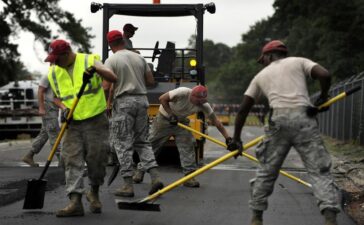Forklifts are indispensable in many industries, from warehousing and manufacturing to construction and retail. However, operating these powerful machines comes with significant risks. Proper forklift training is not only a legal requirement but also essential for ensuring the safety of operators, other employees, and the overall workplace environment.

Why Forklift Training Matters?
- Safety Compliance: According to the Occupational Safety and Health Administration (OSHA), employers must ensure that forklift operators are properly trained and certified. This mandate aims to reduce the incidence of workplace accidents and injuries. A well-trained operator is less likely to be involved in accidents that could result in severe injuries or fatalities.
- Risk Reduction: Forklift operations can be hazardous due to the weight of the loads being transported, the machine’s size, and the often confined spaces in which they are used. Training helps operators understand the machine’s limitations, safe loading and unloading practices, and how to navigate various obstacles and conditions safely.
- Efficiency and Productivity: Trained operators are more proficient in using forklifts, which enhances operational efficiency. They can perform tasks more quickly and accurately, reducing the time and cost associated with material handling. Proper training also reduces downtime caused by accidents or equipment misuse.
Components of Forklift Training
Forklift training Perth programs typically consist of both theoretical and practical components. Comprehensive training covers various aspects, including:
- Classroom Instruction: This segment involves theoretical learning about the forklift’s design and mechanics, safety regulations, and operational protocols. Topics often include load capacities, balance and stability, hazard identification, and pre-operation inspections.
- Practical Training: Hands-on training is crucial for operators to gain real-world experience. This phase includes supervised practice sessions where trainees operate the forklift under controlled conditions. They learn to maneuver the forklift, handle loads safely, and perform essential tasks like stacking and unstacking.
- Evaluation and Certification: The final step involves an assessment to evaluate the trainee’s knowledge and skills. This typically includes a written test and a practical demonstration. Successful trainees receive certification, validating their ability to operate a forklift safely and efficiently.

Key Areas of Focus
- Pre-Operation Inspection: Before using a forklift, operators must perform a thorough inspection. This includes checking the brakes, lights, steering, and load-handling attachments. Identifying and addressing potential issues before they become problems is crucial for safety.
- Load Handling: Proper load handling is fundamental to forklift operation. Operators must understand how to pick up, carry, and place loads to maintain the machine’s stability. Overloading or uneven loading can lead to tip-overs, one of the most common types of forklift accidents.
- Navigating the Workplace: Forklift operators often work in environments with narrow aisles, high shelves, and other obstacles. Training helps them navigate these spaces safely, avoiding collisions and ensuring the safe movement of goods.
- Emergency Procedures: Operators must be trained to handle emergency situations, such as power failures, mechanical breakdowns, or accidents. Knowing how to respond swiftly and effectively can mitigate damage and prevent injuries.
Investing in forklift training is an investment in safety, efficiency, and compliance. By ensuring that operators are well-trained, employers not only meet legal requirements but also create a safer, more productive work environment. The benefits of comprehensive training extend beyond the immediate operational improvements, fostering a culture of safety and responsibility that can significantly reduce workplace accidents and improve overall business performance.





